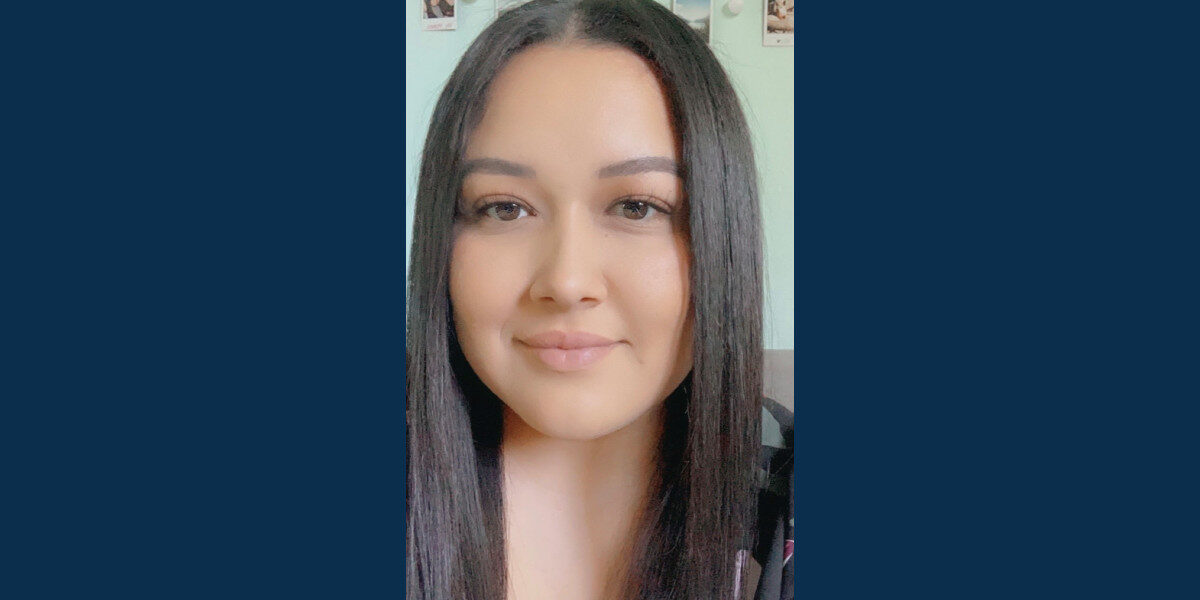

Mental Health Talent Pipeline Spotlight: Catching Up with Stephanie Malagon
2.5 min read. In this article, we catch up with Stephanie Malagon as she prepares for her traineeship with Humanidad Therapy & Education Services.
When we first spoke with Mental Health Talent Pipeline scholarship awardee Stephanie Malagon for this newsletter, back in 2022, she was about to begin her graduate studies in counseling psychology at USF Santa Rosa. As she explained then, regarding her motivation for becoming a mental health professional,
“Growing up I never had an opportunity to go to therapy, let alone my parents, who speak Spanish—they were never given the opportunity or the resources related to mental health. I always understood there was a need for that. It’s what has inspired me to, hopefully, be one of those resources for my community…”
Now about halfway through the three-year master’s program, Stephanie is about to begin her traineeship at Humanidad Therapy & Education Services. It’s an opportunity she’s been looking forward to. As a trainee, she’ll be providing services under professional supervision to community members in her home town of Cloverdale. We caught up with Stephanie recently as she prepares to start her traineeship in August.
How are you feeling about starting your traineeship?
Being able to work in Cloverdale, to give back to my community where I grew up, is going to be really nice. I’m nervous but excited at the same time.
Can you tell us about how you got the traineeship and what you’ll be doing?
USF had a career fair where we were introduced to different organizations in the area that were looking for trainees. Humanidad was one of them. I really liked that they provided services in Cloverdale, since that’s not usually the case for us in this area. It’s either Santa Rosa or further away where services are available. So that really got my attention. I applied and luckily I am now joining the organization in August, working 20 hours per week. Through Humanidad, I will be providing therapy to local community members at La Familia Sana, here in Cloverdale.
“In general, we had little access to mental health resources, especially the Latino community—having Spanish-speaking therapists wasn’t really an option for us. Luckily, things are evolving. Organizations like La Familia Sana and Humanidad are reaching out to Cloverdale and other smaller communities to provide those resources that we definitely need.”
Stephanie Malagon, Mental Health Talent Pipeline participant
What can you tell us about mental health access in Cloverdale?
Growing up in Cloverdale, where I was born and raised, I didn’t see any resources for mental health. And, being Latina, our traditional culture doesn’t necessarily involve discussion of mental health or mental health resources. That wasn’t something I was even aware of until I moved to San Francisco for college. That’s when I realized there are a lot of resources out there, just not necessarily in Cloverdale. Obviously, San Francisco is a big city. Living over there, I was able to learn about psychology, and learn about therapy and what therapists do. When I moved back after college I had a much bigger appreciation of the need that Cloverdale has for those resources. In general, we had little access to mental health resources, especially the Latino community—having Spanish-speaking therapists wasn’t really an option for us. Luckily, things are evolving. Organizations like La Familia Sana and Humanidad are reaching out to Cloverdale and other smaller communities to provide those resources that we definitely need.
Granted that you haven’t started your traineeship yet, are you seeing more awareness about mental health generally?
From what I have seen throughout the years, I feel like the Latino community is becoming a little more aware of mental health, and mental health resources. La Familia Sana, for example, provides a lot of workshops, not all of them mental health–related but they work with the community to support people in a lot of different areas including mental health. That’s one way the situation has improved. At the same time, they’re one of the only organizations, along with Humanidad, that provide services for mental health. I feel we do need more resources and outreach to let the whole community know. Not everyone is aware that this support is available and that it’s for low-income communities, families that might not necessarily have the financial ability to look for resources elsewhere.
Do you have a sense of the more effective ways of raising awareness around mental health?
Social media is a big one among the strategies that I’ve seen so far. Just because almost everyone has a cell phone and uses social media. I’ve seen a lot on Facebook about mental health and available resources, posted in both Spanish and English, which is really helpful in reaching the community. I also think it really helps if we see other community members that we know at related events or using mental health resources. Especially in a place like Cloverdale, which is such a small community where everyone knows each other. Seeing family members and other community members using these resources might help a person feel like they’re not alone, but instead feel like, “Oh, I can do that, too. I can reach out as well.”

Related News + Stories
Invest in Our Community
Your support is vital to our collective vision of eliminating health inequities in northern Sonoma County.
Donate



